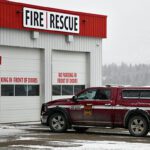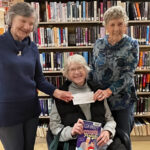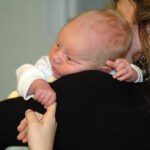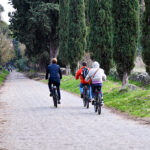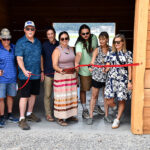Home »

It is deer fawning season in B.C.
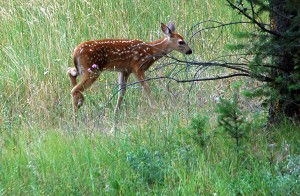 From late May to June is deer fawning season in B.C. and it is important that everyone give deer a wide berth, keep pets on a leash, and avoid approaching or interfering in any way.
From late May to June is deer fawning season in B.C. and it is important that everyone give deer a wide berth, keep pets on a leash, and avoid approaching or interfering in any way.
A female deer (doe) will give birth to one to three fawns. A doe will often leave her fawn(s) alone for hours at a time while she feeds, returning throughout the day to nurse. Scentless, well-camouflaged and silent, fawns may appear to be orphaned and helpless, but this is their way to avoid predators. If you come across a fawn(s), leave the area as the doe may be nearby. Lingering in the area may prevent her from returning.
Fawns that are in distress may become more vocal. If you suspect a fawn has been orphaned, do not try to intervene or capture them. It is illegal under the BC Wildlife Act to capture a deer, and most wild animals, without a permit. Instead, call the Conservation Officer Service at 1-877-952-7277.
Does can be very protective of their fawns and it is important for pet owners to keep dogs on a leash during this time. Does may see pets as predators or threats to its newborns since dogs belong to the same family as coyotes and wolves – natural predators of fawns in the wild.
Dogs have been injured, and sometimes killed, when they approach deer that are protecting their fawns. The fawns are not always visible and may be hidden nearby. People have also been injured when they have tried to intervene to protect their pet. This can happen both in natural spaces or within communities with urban deer.
Urban deer populations are on the rise in many communities as deer are able to successfully forage and raise their offspring in areas that predators are less likely to enter. Intentional feeding of deer exacerbates this issue. Urban deer are more likely to get involved in conflicts with dogs and are at risk of being struck by vehicles. Like all wildlife, the best way we can help deer, and keep people and pets safe, is by keeping them wild and not providing them unnatural food sources.
WildSafeBC Elk Valley is grateful for the generous support the program receives from its funders including the District of Sparwood, the RDEK, Columbia Basin Trust, the British Columbia Conservation Foundation, and the BC Ministry of Environment and Climate Change Strategy.
e-KNOW file photos
WildSafeBC Elk Valley

